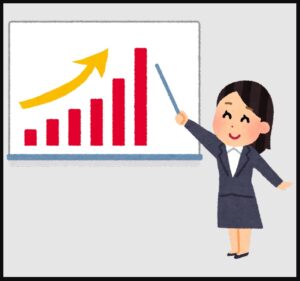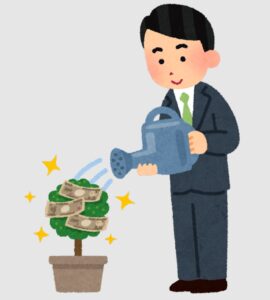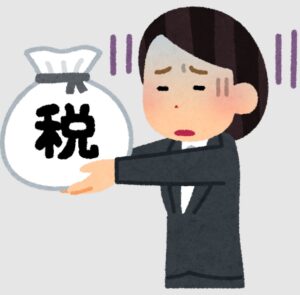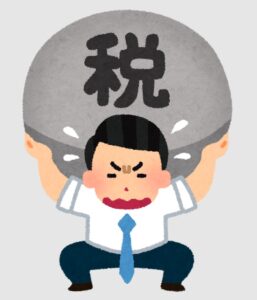管理人オススメコンテンツはこちら
「イールドギャップ|金利差で得をする!借金を活用して資産を増やす秘策」
〜前回のつづき〜
●借金は悪じゃない。“使い方”で資産になる~今すぐ返すより、うまく使う~

他にも手元に
銀行から借りた100万円が
手元に有ったとしましょう。
金利は1%だったとしましょう。
だから100万円借りてて
金利が1%だったとすると
毎年1万円利息を支払う訳です。
100万円に対して金利が1%なので
毎年1万円を利息で支払う。
どっちが得か?
という話なんですけど
・この100万円を全額今すぐ返してしまう
・100万円を年利3%の投資を行う
100万円を全額返してしまうと
金利というのは
当然支払わなくてもいいという事に
なりますよね?
毎年1万円の利息を払ってたのが
金利を支払わなくて
良くなりますよね?
借金が無くなる。

でも何も残らない。
ではこの100万円を借りたまま
年利3%の投資をしたとすると
金利は1万円支払う訳なんですけど
投資から入るお金
年利3%の投資をしているので
投資から入ってくるお金は
3万円入ってくる。
投資からお金は3万円入ってきて
支払う金利は1万円なので

差し引き2万円毎年得する事になる。
これだったら返さない方が得
ということになりますよね?
金利をずっと払っておく方が得になる。
●イールドギャップ~この差が、あなたの収益になる~

不動産投資でも同じなんですよ。
金利2%で借りた1億円で
利回り10%の不動産を買う。
そうすると
1億円の8%が毎年儲かる
という事なんですよね。
人から借りたお金で
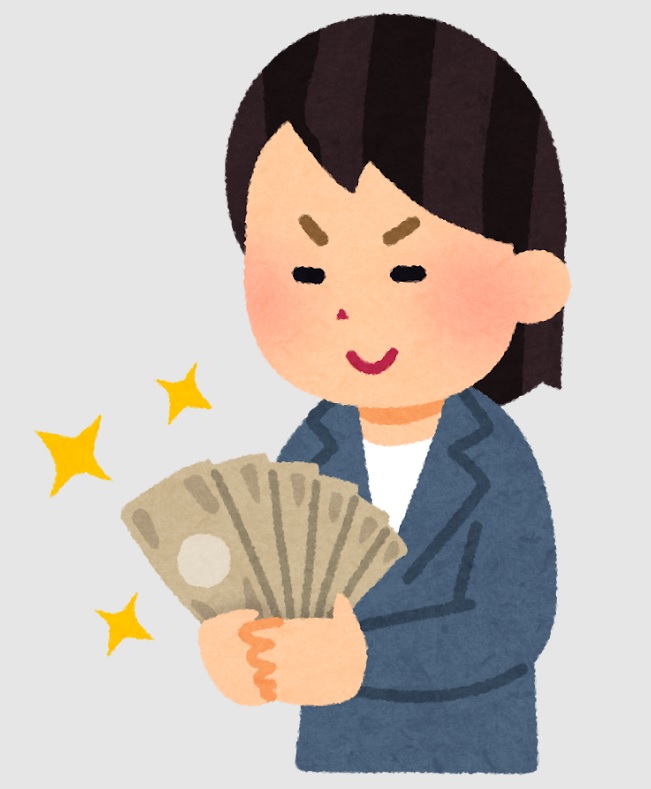
利鞘(りざや)を取っていくというのが
不動産投資の強みです。
実際はもっと計算とか
色々複雑ですけどね。
この金利差の事を
『イールドギャップ』と言います。
忘れてもいいですけど
良く出てくる言葉の一つなので
覚えておいても損はないです。
この辺は大切な考え方なので
覚えておいて下さい。
●繰上げ返済が、減税メリットを削ることもある~返せば安心。でも、残せば得~

住宅ローン減税の
メリットが減るというのも
繰上げ返済のデメリットです。
住宅ローン減税とは
借入金額の1%が住民税などから
還元される仕組みなんですよね。
だから
あまり早く繰り上げ返済しちゃうと
その分借りてる金額が小さくなるので
住宅ローン減税のメリットが
減ってしまうという事です。
●まとめ
◆繰り上げ返済はオススメ出来ない
→・金利が超低金利だから
・手持ちの現金が減ってしまう
・住宅ローン減税のメリットが減る場合がある
◆そもそも繰り上げ返済とは?
→毎月の返済とは別に借入額の一部または全額を返済する事
◆なぜ繰り上げ返済をオススメしないのか?
→・得する金額が少ない
・すぐには楽にならない
・手元の現金が無くなる
◆もしも金利が10%なら?
→元本を早く返さないと利息がドンドン膨らんでしまう
◆金利は非常に大事
→投資をしたら増えるが借金したら逆のことが起きる
◆手元の現金が無いと投資機会を逃す
→キャッシュは王様
◆借金しても得する考え方
→金利と投資のパーセンテージの違いを意識する
◆不動産投資でも同じ
→金利差(イールドギャップ)を意識
〜〜〜つづく〜〜〜
Special Thanks college president Ryo.

●おまけ
≪≪perplexityちゃんによる文章まとめ≫≫
借金は一概に悪いものではなく、使い方次第で資産を増やす手段にもなります。
例えば、銀行から金利1%で100万円を借り、そのお金を年利3%の投資に回せば、利息1万円を支払っても3万円の収益が得られ、差し引き2万円の利益が生まれます。
このように、借入金の金利より高い利回りで運用できれば、借金を返済せずに活用する方が得策です。
不動産投資でも同様に、借入金利と投資利回りの差(イールドギャップ)が利益となります。
また、住宅ローン減税のような制度も、繰上げ返済を急ぐとメリットが減る場合があります。
低金利時代は、手元の現金を減らしてまで繰上げ返済するより、資金を有効活用することが大切です。
Citations:
[1] https://www.powerful-fudousan.jp/guide/real_estate/yield-gap/
[2] https://www.musashi-corporation.com/wealthhack/yield-gap
[3] https://www.you-me-machidukuri.co.jp/blog/realestate-investment-yieldgap/
[4] https://sumaity.com/realestate_investment/press/881/
[5] https://rita-hudousan.com/info/page_479.html
[6] https://shikin.yayoi-kk.co.jp/study/borrowing/fudosankatsuyo-05.html
[7] https://yamatozaitaku.com/column/realestate-investment/20210122/
[8] https://home4u-owners.jp/contents/construction-apartment-3-2-9808
≪≪Chat-GPTくんによる英訳≫≫
~Continuing from the Previous Post~
【Debt Isn’t Evil — With the Right Strategy, It Becomes an Asset】
Rather than repaying immediately, use it wisely.
Let’s say you have ¥1,000,000 on hand — money you borrowed from the bank.
Assume the interest rate is 1%.
That means you pay ¥10,000 per year in interest on the loan.
So, which is the smarter move?
Option 1: Repay the full ¥1,000,000 immediately
Option 2: Invest the ¥1,000,000 at a 3% annual return
If you choose to repay the loan right away, you no longer have to pay the interest — the ¥10,000 per year is gone.
The debt disappears — but so does the money.
On the other hand, if you keep the loan and invest at 3%, your investment brings in ¥30,000 per year.
You still pay ¥10,000 in interest, but the net gain is ¥20,000 per year.
In this case, not repaying the debt is the more profitable strategy.
Sometimes, it pays to keep paying interest.
—
【Yield Gap — The Difference That Becomes Your Profit】
This same principle applies to real estate investing.
Imagine borrowing ¥100,000,000 at 2% interest and buying a property that yields 10%.
That’s an 8% spread — or ¥8,000,000 profit per year.
This is the power of using other people’s money to earn a return — a key strength of real estate investment.
Of course, the actual math is more complex, but this basic concept is important.
This gap between borrowing cost and investment return is called the “Yield Gap.”
You don’t have to memorize the term, but it’s a frequently used and important concept worth remembering.
—
【Early Repayment Can Reduce Your Tax Benefits】
Paying it off brings peace of mind. But keeping the loan could be more rewarding.
One downside of repaying your mortgage early is that it can reduce the benefits of Japan’s Mortgage Tax Deduction system.
This system returns about 1% of your loan balance annually through income or residential tax credits.
If you repay too early, your outstanding loan balance shrinks — and so do your tax benefits.
So, while repaying early may feel responsible, it might actually cost you more in lost tax savings.
—
【Summary】
◆ Why Early Repayment Isn’t Recommended
Interest rates are extremely low
You lose liquidity (cash on hand)
You may reduce your mortgage tax benefits
◆ What Is Early Repayment?
Paying off part or all of your loan ahead of schedule, in addition to your regular payments
◆ Why It’s Often Not Worth It
The financial benefit is small
It doesn’t ease your monthly burden right away
You lose valuable cash reserves
◆ What If Interest Rates Were 10%?
In that case, paying down the principal quickly is crucial to avoid massive interest buildup
◆ Interest Rates Matter — A Lot
Good investments grow your money
Expensive debt erodes it
◆ No Cash Means Missed Opportunities
Cash is king
◆ Debt Can Be Profitable
Focus on the difference between borrowing cost and investment return
◆ The Same Applies to Real Estate
Leverage the Yield Gap
Special Thanks OpenAI and Perplexity AI, Inc

